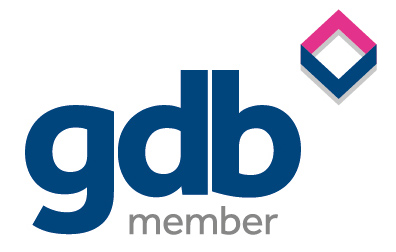Harvey John
Unit 2 Ferry Wharf
Hove Enterprise Centre
Basin Road North
Portslade, East Sussex
BN41 1BD
When discussing salaries, many women still have to navigate the tightrope of being too ‘pushy’ or too modest – a state of affairs that reinforces the gender pay gap.
A few years ago, a report by Hannah Riley Bowles in the Harvard Business Review found women are more reticent than men to negotiate their salaries.
And research on a cohort of US graduates found that 57% of men negotiated their starting salary, while only 8% of women did so when starting a new job.
Why was this the case? Was it a lack of confidence compared to their male counterparts? Are men simply better negotiators?
The conclusion was alarming. The hesitancy relates to how women are treated when they negotiate rather than confidence or skills at negotiation. In other words, women pay a higher price for asking for more, compared to men.
Researchers measured the ‘social cost’ of negotiation. This is the willingness to take on someone who negotiated for more, compared to those who simply accepted an offer. In repeated studies, the social cost of negotiating for higher pay has been found to be greater for women than it is for men. When men overplay their hand they are more easily forgiven than women.
Riley Bowles believes that women don’t push as hard for higher salaries because they are aware they are more likely to suffer from a backlash. And the research backs this assertion.
Heidi and Howard
One of the best-known experiments in how men and women are perceived at work centres around a successful Silicon Valley venture capitalist called Heidi Roizen.
Professor Frank Flynn at Columbia Business School presented his class with a case study of Heidi’s successful and ambitious career – but he changed her name to Howard for half of the class.
The students felt Heidi was significantly less likeable and less worthy of being hired than Howard – and they perceived her as being more ‘selfish’ than Howard.
Deborah Gruenfeld, of Stanford’s Graduate School of Business, noted that: “The more assertive a student found the female venture capitalist to be, the more they rejected her – a fundamental challenge to women’s leadership arises from the mismatch between the qualities traditionally associated with leaders and those traditionally associated with women.”
The assertive, authoritative, and dominant behaviours that people link with leadership tend not to be viewed as attractive in women.
Time to lean in?
Suppose there is an expectation that sexism exists in salary negotiations and career progressions. In that case, there is a danger that this becomes self-fulfilling with fewer women pushing themselves forward for big raises and promotions.
The mindset was addressed in the influential book, Lean In, by Facebook COO Sheryl Sandberg, which urged women to not hold back and to be ambitious. She writes about tackling the ambition gap between the genders.
Whether it is discrimination or lack of ambition (or a combination of both) there remains a serious gender imbalance. There are currently six female CEOs in FTSE 100 companies, compared to 94 men.
On the particular subject of salaries, Sandberg says, “If you are negotiating for a raise and you are a man, you can walk in and say, ‘I deserve this.’ That will not backfire on you. We know the data says it will backfire on a woman. Along with saying, ‘I deserve this,’ women should explain that, ‘This is important for my performance,’ and ‘This will make me more effective as a team member.'”
Does it work?
Another analysis feature on Harvard Business Review from 2018, found that women are just as likely to ask for a raise, but they are less likely to get them.
The authors (Artz, Goodall and Oswald) write, “The bottom line of our study is that women do ‘ask’ just as often as men. They just don’t ‘get’.”
“Women ask for a raise just as often as men, but men are more likely to be successful. Women who asked obtained a raise 15% of the time, while men obtained a pay increase 20% of the time. While that may sound like a modest difference, over a lifetime it really adds up.”
Another worrying statistic is that women are less likely to apply for jobs if there are any gaps in their skills or experience. A 2014 Hewlett-Packard study found that men will apply for a job they feel 60% qualified for, while women hold out for 100%.
It all sounds wholly depressing with a levelling up on gender pay seeming very unlikely. Yet there is a glimmer of hope. Artz, Goodall and Oswald report that there is far more parity when it comes to younger women.
It appears that young women are refusing to accept any bias or discrimination, and they are fighting for what is fair. And too right too!
Take the bias out of negotiations
For the time being, the odds are still firmly stacked against women seeking fair recompense for their skills and experience
Until society becomes fairer, maximise your chances of getting the right salary – without a backlash – by allowing a determined third party to negotiate for you.
This is where we come in. We will negotiate the right salary for a role without any bias or prejudice. We know the going rate for the position, regardless of the gender, race or age of the applicant.
You should not need a recruitment agency to get what you rightly deserve, but until the gender pay divide is consigned to history, why lose out?
–
Check out our latest legal jobs.
Author

Hayley prides herself on her consultative approach and very much working in partnership with both her clients and individual legal professionals. Having worked in private practice as a Solicitor, Hayley brings unparalleled added value to the recruitment process.







